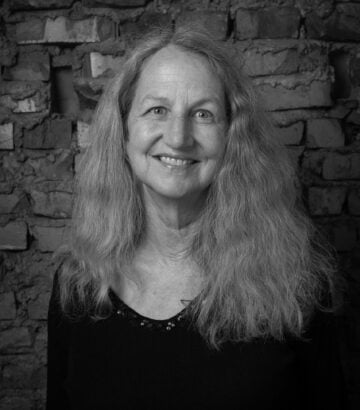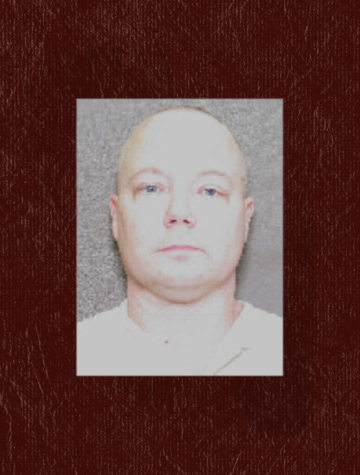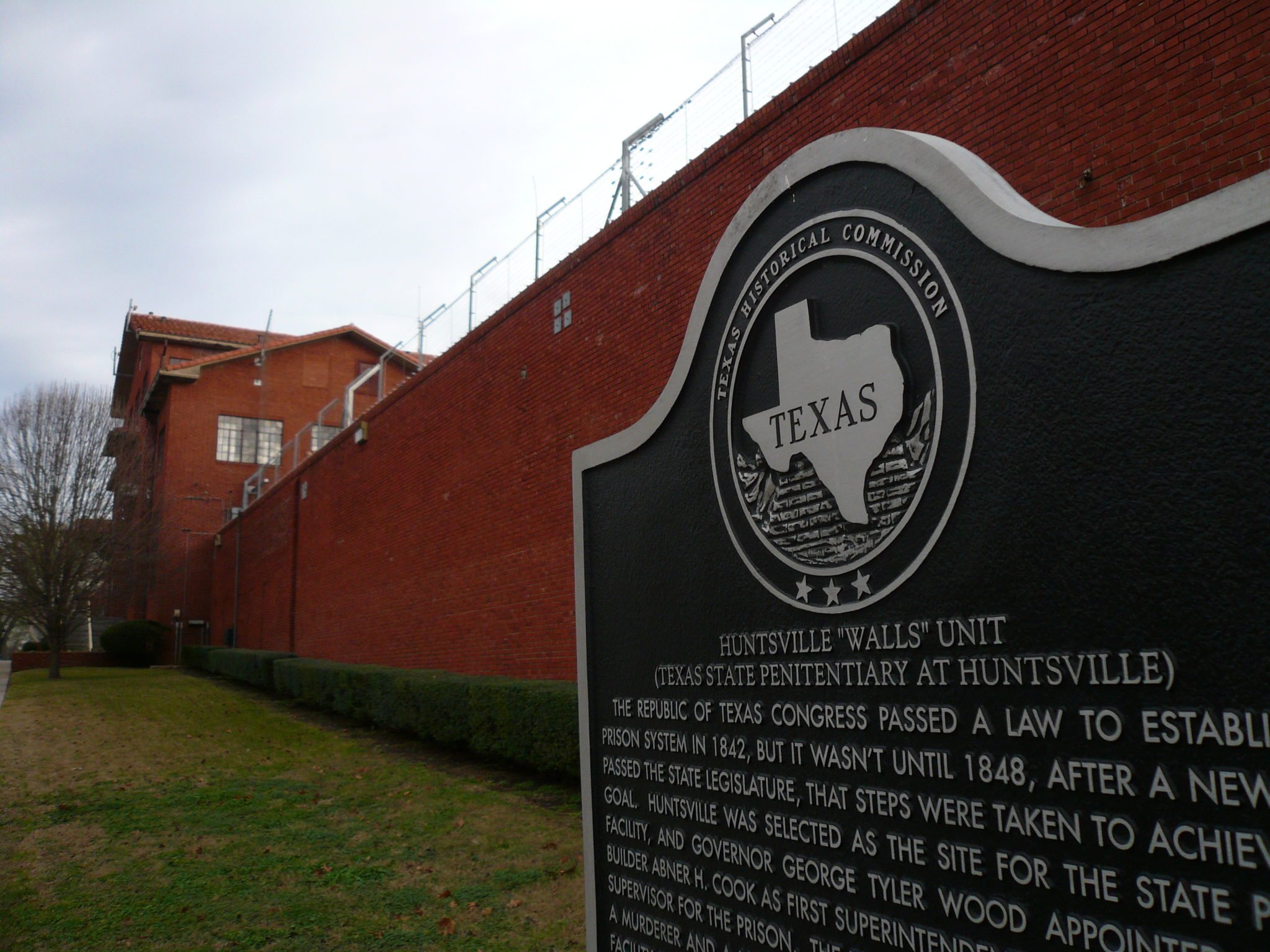
Uninvestigated, Uncounted: How Justices of the Peace Miss Important Clues in Death Investigations
In Texas, justices of the peace with little training can miss important clues in death investigations, and make mistakes tracking suicides, homicides, and COVID-19 deaths.

Janice Lee Wilhelm was dead in her blue recliner–that much was clear. The 63-year-old grandmother had leaned back as if to rest her legs, tucked under the afghan she’d crocheted. She appeared to be asleep, but blood had oozed from a bullet hole in her neck and created a patch of scarlet on the front of her pink T-shirt. She’d been shot in her Centerville home, but by whom?
Jack Keeling, a justice of the peace (JP) with no medical training, was in charge of death investigations in his rural district in Leon County, home to Centerville, about halfway between Dallas and Houston. All across Texas, elected JPs in counties with fewer than 2 million residents–all but 15 of the state’s 254 counties–handle such investigations.
Keeling knew Wilhelm. Wilhelm, who had worked as a home health nurse, had ample knowledge of how a prescription drug overdose could kill–a relevant piece of information since her hands were in her lap when she died, and bottles holding plenty of prescription pain pills were within easy reach. But Keeling, a former prison guard with a high school education, determined that Wilhelm had hoisted her husband’s semi-automatic .45 caliber Bersa “Thunder,” and shot herself in the left side of her neck at about 2:30 p.m. on December 8, 2010. He quickly ruled her death a suicide.
Within three hours of responding to her husband’s 911 call, the Leon County Sheriff’s Office also closed their case. The Southwest Dallas County Medical Examiner later signed off on the JP’s ruling.
Keeling didn’t interview either of Wilhelm’s adult children, who would have told him that their mother, who was left-handed, was so disabled after having a tumor removed from her left arm that she struggled to lift so much as a TV remote control.
“To this day, none of the authorities from the counties has contacted me and my sister to talk to me about my mother’s death,” says Wayne Farmer Robeson, Wilhelm’s son, who had known JP Keeling all his life. “I always thought that was odd.” Instead, authorities interviewed her second husband, who told them he had discovered the body.
Robeson was immediately alarmed about how quickly his mother’s death was dismissed as suicide, and by Texas’ apparent lack of minimum standards for death investigations in rural areas. Robeson believes his mother was murdered, and expert reports and evidence contained in a civil lawsuit he and his sister filed in January 2012 appear to support that claim. An appeal remains pending. He also wonders: How many other people might have been murdered in Leon County or in other rural places, their deaths never fully investigated?
The vast majority of Texas counties rely on elected justices of the peace to respond to reports of unexpected, sudden, or violent deaths at home, on the streets, and in emergency rooms, among other places. Those same elected officials–whose eclectic duties remain a relic of Old West frontier days when some Texas judges like Roy Bean held court in a store–also preside over traffic court, evictions, and perform marriages. Collectively, Texas JPs handle thousands of homicides, suicides, and accidental deaths that occur each year outside a hospital, or in the first 24 hours in an emergency room. They are, during the pandemic, the front line in reporting home deaths from COVID-19, too.
Yet JPs are not required by Texas law to have any medical knowledge or training at all. While the Texas Court of Criminal Appeals has established a bootcamp for newly-elected JPs, the 20-hour crash course covers the myriad laws on everything from housing to traffic court to civil rights. It includes just two hours of lectures from a medical examiner (ME)–a licensed physician trained as a pathologist–on how to investigate deaths.
Justices of the peace, however, are less accurate at identifying murders and suicides, and at tracking deaths linked to COVID-19, compared to states that used regional or statewide medical examiner systems, three recent studies show. About half of all U.S. states, including Texas’ neighbors Oklahoma, New Mexico, and Arkansas, have adopted some type of statewide medical examiner network.
A 2019 study called the “The Political Economy of Death,” conducted by Jose M. Fernandez, an economist at the University of Louisville in Kentucky, found that states like Texas that rely heavily on coroners or JPs with little or no medical training tended to underreport suicides compared to states that use medical examiners. JPs also appeared to miss murders by misclassifying them as accidental deaths or suicides, the same study shows.
In another study, economist Christopher Ruhm of the University of Virginia found nationwide underreporting of opioid overdose deaths, a problem that tended to be worst in counties that failed to order autopsies or other post mortem tests to identify drugs linked to deaths. The study concluded that the actual number of deaths due to overdoses of opioids, including heroin and prescription pain drugs, are likely 20 to 35 percent higher each year than reported.
Now the preliminary results of an ongoing 2021 study show that states that still use JPs or coroners are undercounting COVID-19 deaths too, according to fatalities reported to the Centers for Disease Control and Prevention last year that are being analyzed by researchers at Boston University.
Other states with fewer resources have managed to develop or expand ME systems either by establishing state labs or by gradually building regional networks of coordination between existing MEs across counties. In Texas, ME offices already established in the 15 counties could be expanded and standardized to serve broader regions.
Back in the 1950s, a group of physicians banded together with attorneys to push for improvements in forensic examinations of deaths in large Texas counties. In 1955, they got state legislators to pass a law requiring all counties with more than 250,000 people to hire medically-trained pathologists to conduct autopsies on all unattended deaths, homicides, suicides, and accidents. Over the years, that created a patchy system: Out of Texas’ 254 counties, only 15 have medical examiners.
As counties grew, the Legislature loosened the population requirement to 1 million. The law now applies only to counties with more than 2 million residents, following a September 2019 reform sponsored by Republican state Representative Tan Parker. The move was mainly to help his home county of Denton avoid having to establish its own medical examiner’s office, an aide said in response to the Observer’s interview request.
In most of Texas, death investigations are handled by local JPs, who often conduct their probes by phone. That’s what happened in 2016 when U.S. Supreme Court Justice Antonin Scalia died suddenly at a resort in Far West Texas. As the Texas Medical Association stated in a 2019 article for its physician members, the elected county official “made this ruling by phone, without ever seeing the body. This contributed to conspiracy theories that later erupted on the internet as to the true cause of death. … Yet Justice Scalia’s death investigation was handled according to Texas law and mirrored thousands of similar investigations in rural areas.”
Much the same thing happened in 2006 when a Southern Baptist pastor named Matt Baker called to report the death of his wife, Cari, from an apparent overdose of sleeping pills. The JP in McLennan County ruled Cari Baker’s death to be a suicide without going to the scene or viewing a typed, unsigned suicide note, according to Kathryn Casey, a Houston author who later investigated the case in her book Deadly Little Secrets. A private investigator hired by Cari Baker’s parents later discovered that her husband had been having an affair, and killed her. Thanks to evidence dug up by the victim’s grieving parents, Baker is now serving a 65-year prison sentence for murder.
Wayne Farmer Robeson eventually obtained copies of police reports, scene photos, and 911 calls related to his mother’s death. One report showed that Janice Lee Wilhelm’s husband had admitted to a Texas Ranger who reinvestigated the case in 2014 that Wilhelm could not load the heavy gun she supposedly used to kill herself. The ranger reported that her husband admitted “he had loaded the weapon because that was not something she could do,” and that his gun was kept loaded in case of intruders.
After his mother supposedly shot herself, that gun was found five or six feet away from her chair on the floor, according to the 2010 county sheriff’s report. Robeson wondered: How did the gun end up that far away from his mother’s recliner, if she dropped it as she died?
When Robeson called the Dallas ME’s office, he learned the office had no record of whether her hands had tested positive for gunshot residue to determine if she had fired the gun. Leon County had no record of residue test results either.
His suspicions deepened after a will materialized in 2011 that left her entire estate to her second husband, Gerald Wilhelm. Robeson hired an expert to analyze the cursive handwriting used in that will; the expert reported that the writing did not match his mother’s. Robeson and his sister filed a civil lawsuit in early 2012 that contested the will as a forgery, but the estate was transferred anyway. An appeal remains pending in the 10th Circuit Court of Appeals. After his mother died, Robeson said her widower allowed an oil well to be dug on the property–something he believes she had refused to approve.

The widower, who died in 2017, transferred the property to two friends, including a local bank teller who has continued to dispute Robeson’s claims in an ongoing civil case, records show. In a pending appeal, the beneficiary has argued that Wilhelm’s children are motivated by “anger, bitterness, and malice, which they are apparently experiencing as a result of frustrations resulting from their disinheritance by their mother.”
Robeson says he feels helpless to do anything to challenge the JP’s ruling of his mother’s death as a suicide. That’s because the Texas Code of Criminal Procedure gives the JP discretion over whether to reopen a case. “A justice of the peace may reopen an inquest if, based on information provided by a credible person or facts within the knowledge of the justice of the peace, the justice of the peace determines that reopening the inquest may reveal a different cause or different circumstances of death,” it states.
JP Keeling declined a request for an interview, but through a staff member said that he “doesn’t have a reason to reopen the case.”
All across Texas, JPs are largely left to their own devices. No one audits their work or checks whether they properly retain paperwork on death investigations, as required by law. Frank Powell, a criminal defense attorney and licensed physician who has reviewed the Robeson case says the law that gives JPs the last word on reopening death investigations means “There’s a built in conflict of interest.”
In a 2019 year-long investigation, the Observer found that rising numbers of suicides in rural Texas tended to be undercounted, especially in East Texas. JPs in Morris County could not even locate five out of 12 reports on suicides requested by Christopher Collins for the Observer’s investigation. In an interview, Jennifer Easley, one of the Morris County JPs who was unable to locate documents, said: “You ought to be able to find stuff like that. If those physical files are gone or destroyed, where would you go to find that information?”
No Texas officials review or audit death investigation records, even when a JP is found to be corrupt or gets convicted of a crime.

Consider the case of former Texas JP Eric Lyle Williams. Williams, a licensed attorney, was elected as Kaufman County JP in 2010. He had served only about six months before he was indicted for stealing computers and suspended from his position by the State Commission on Judicial Conduct in July 2011. Williams then hatched a plot and killed three people: the district attorney (DA) who had prosecuted him, the assistant DA, and the DA’s wife. He was convicted of capital murder in December 2014 and sentenced to death.
In a telephone interview, current Kaufman County DA Erleigh N. Wiley, who says she was on Williams’ hit list too, told the Observer that she doubts his successor or anyone else ever reviewed whether Williams investigated other deaths in his time as JP.
Wiley said requiring audits for problematic JPs and potentially improving family members’ rights to appeal rulings would be a good issue for the Legislature to consider. Over the years, Wiley said she has heard from families who have questioned JPs’ rulings and been forced to pay for additional forensic tests themselves. But, she wonders: What happens when families don’t have the funds?
The State Commission on Judicial Conduct, which investigates complaints on all judges statewide, has taken public action in cases when individual JPs were indicted for crimes, committed acts of misconduct, or failed to complete the CCA’s minimal training program. But Jacqueline Rashawn Habersham, the commission’s executive director, said her agency has never publicly disciplined any JP for errors in a death investigation. “This agency has taken no public action in the past with respect to this subject matter,” she wrote in an email.
In Leon County, Wayne Farmer Robeson remains frustrated by his inability to change the JP’s ruling in his mother’s 2010 death. At their own expense, the family hired Vincent DeMaio, the retired longtime medical examiner of Bexar County, to review Wilhelm’s death and autopsy report. In two reports he provided to the family in 2015, DeMaio said a contact wound to the neck was rare in a suicide and would have severed the victim’s spinal chord, though Wilhelm’s hands were found in her lap. He also remarked that no one admitted to moving the weapon, yet given the gun was found several feet from the body, “It had to have been placed there by someone other than the victim. Recoil would not have moved the gun that distance,” he said. “The aforementioned facts suggest the possibility of a homicide.”
Jess Mason, an attorney for an heir in the ongoing legal dispute, disagrees, saying that the large handgun “has a great deal of recoil when fired.” He added, “We are of the opinion that the location where the gun was found is consistent with a self-inflicted gunshot,” and said the death investigation shouldn’t be reopened.
DeMaio later reviewed the victim’s medical records, finding further evidence of a possible homicide based on the size of tumor removed from her left arm, the weight of the gun, and the position of her fatal wound. DeMaio is a board certified board-certified forensic pathologist. He is nationally known for his expertise in gunshot wounds.
Robeson said he subsequently tried to pass on more information, but JP Keeling “won’t speak to anyone.” Keeling never reopened the investigation.
The civil court case, with more than nine years of expensive attorney and expert fees so far, has proved the only forum where Robeson has been able to partially illuminate what he believes to be a murder, and a cover-up, in his hometown of Centerville. Now, it’s a place he no longer feels safe. He relocated to Nacogdoches in 2012 and sold all of his remaining property in Leon County in 2017. “It became a very hostile environment for us.”



